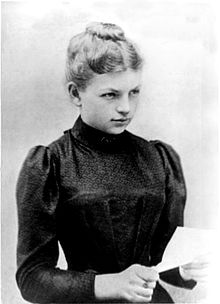Fritz Haber
Fritz Haber was a German chemist who received the Nobel Prize in Chemistry in 1918 for his invention of the HaberBosch process, the method used in industry to synthesize ammonia from nitrogen and hydrogen gases. This invention is of importance for the largescale synthesis of fertilizers and explosives. The food production for half the worlds current population depends on this method for producing nitrogen fertilizers. Haber, along with Max Born, proposed the BornHaber cycle as a method for evaluating the lattice energy of an ionic solid.
Fritz Haber was born in Breslau, in Prussian Silesia , into a welloff Jewish family.38 The family name Haber was a common one in the area, but Fritz Habers family has been traced back to a greatgrandfather, Pinkus Selig Haber, a wool dealer from Kempen. An important Prussian edict ofMarch 1812 determined that Jews and their families, including Pinkus Haber, were to be treated as local citizens and citizens of Prussia. Under such regulations, members of the Haber family were able to establish themselves in respected positions in business, politics, and law.35
Source: Wikipedia

